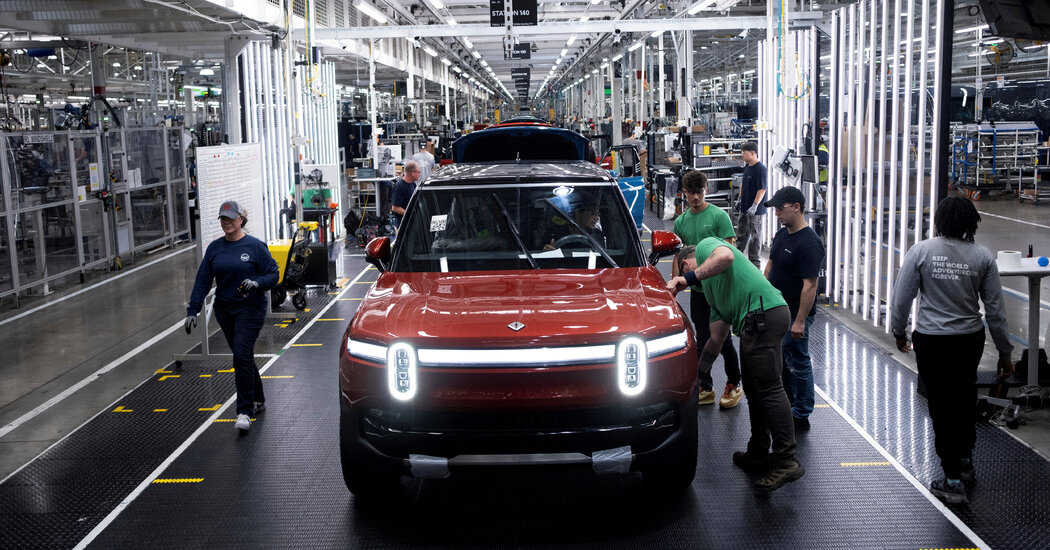The new agreement builds on an earlier announcement in which the German automaker said it would invest up to $5 billion in Rivian, a maker of electric vehicles. The new venture brings them closer.
Volkswagen, the German automaker, and Rivian, a California-based maker of electric pickups and S.U.V.s, said on Tuesday they would form a joint venture to develop software and electronics, extending a partnership they announced in June.
Volkswagen said it would invest $5.8 billion in the joint venture and own a 50 percent stake. While short of an acquisition, the new joint venture broadens the cooperation with Rivian and could foreshadow similar alliances between other established carmakers and new companies struggling to become profitable.
“The partnership with Rivian is the next logical step in our software strategy,” Oliver Blume, the chief executive of Volkswagen, said in a statement.
Volkswagen had said in June that it would invest up to $5 billion in Rivian, providing much needed cash to the smaller company. The two businesses said they would work together on vehicle software — an area where the German carmaker has struggled. The agreement announced Tuesday goes further by creating an independent company to jointly develop technology for electric vehicles.
Though the world’s second-largest carmaker after Toyota, Volkswagen has struggled to make inroads in the United States. Sales of its electric cars here have lagged behind General Motors and Hyundai-Kia. Volkswagen’s share of the electric car market in the United States was only 3.4 percent in the third quarter, including the company’s Audi and Porsche brands, according to Kelley Blue Book.
Rivian’s pickups and sport utility vehicles have received positive reviews in the automotive press, but the company is not selling enough of them to make money. Rivian said last week that it lost $1.1 billion in the third quarter, an improvement from the same period in 2023 when it lost $1.4 billion. However, deliveries during the quarter fell to 10,000 vehicles, from 15,600 a year earlier, because of a parts shortage.
Volkswagen does not sell a pickup truck in the United States, a handicap in a market where such vehicles are best sellers. But the company is building a factory in South Carolina where it plans to revive the Scout off-road brand with a line of electric S.U.V.s and pickups.
Scout began taking reservations for the vehicles last month, but they will not be available until 2027.
In Europe and China, Volkswagen is trying to cut costs as it faces weak demand for its vehicles. The company also faces high energy and labor costs in Germany, home to many of its factories. The company said last month that its profit in the third quarter fell 42 percent to 2.86 billion euros, or $3.1 billion, its lowest level in three years.
Volkswagen has asked its 120,000 workers in Germany to accept wage cuts of 10 percent. The company has threatened to close factories there, too. The company’s main union is seeking a 7 percent wage increase and says it may resort to strikes if its demands are not met.
